Five UBC Applied Science graduates tackling equity locally and globally
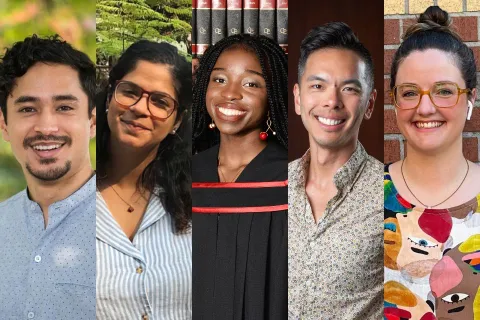
A new generation of architects, planners, nurses and engineers are graduating from UBC this week.
Over 1,800 Faculty of Applied Science graduands will be crossing the stage today through Friday, as they step into the next stage of their lives, ready to apply their hard-earned expertise to their chosen professions.
Here are five of these graduating students, whose efforts to build more inclusive places and solutions for people are improving lives around the world.
Dr. Pranav Shrestha, Doctor of Philosophy, Department of Mechanical Engineering
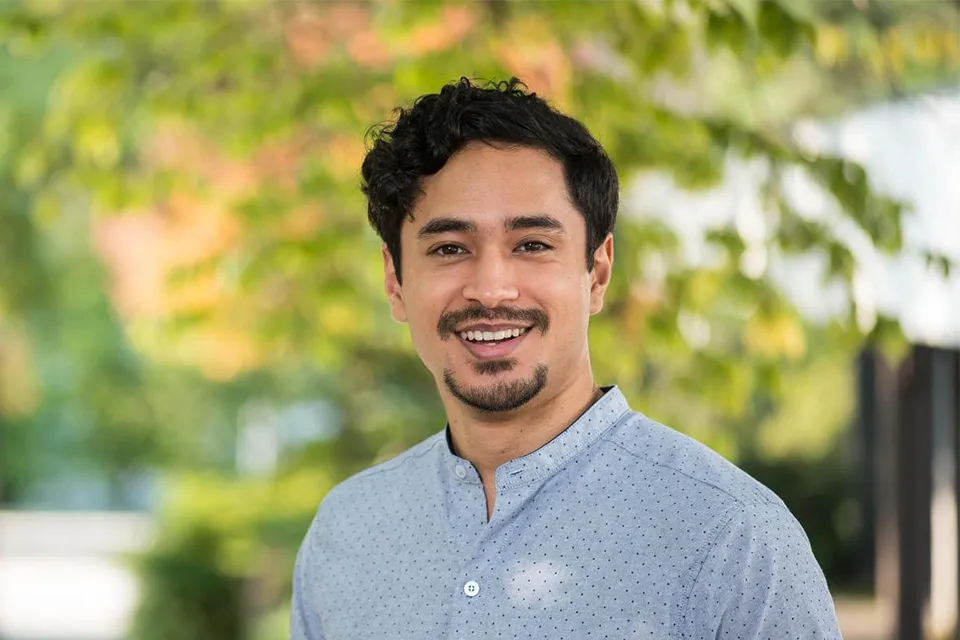
Dr. Pranav Shrestha, who grew up in Nepal, seeks to understand first-hand the challenges facing people in rural and resource-constrained communities.
One of these is sickle cell disease, the most commonly inherited blood disorder, which disproportionately affects people in low and middle-income countries. Early screening and treatment are vital to improve the quality of life of patients, but can be difficult to obtain in communities that lack access to health care resources and diagnostic tools.
"Growing up in Nepal, then getting a chance to work with global experts to bring innovative technologies back to Nepal, was an absolutely rewarding full-circle moment for me," said Shrestha. "I believe researchers and organizations have a moral duty to ensure that innovations — especially related to health care — are accessible to communities in need to address the disparities in technology dissemination. Fortunately, there are many that are motivated to join such efforts."
To create a solution for communities with low resources, during his degree, Shrestha led a multi-disciplinary study involving members from Canada, the US and Nepal. Using microscopy and machine learning, he developed an innovative diagnostic tool as a suitable low-cost option, while additionally testing existing low-cost options to determine their viability in resource-constrained settings.
Pranav’s drive toward equitable access to health care and his ability to engage with a complex team spanning multiple countries is an incredible accomplishment, which he contributes in part to his connections made while at UBC.
Zahra Hirji, Master of Landscape Architecture, School of Architecture and Landscape Architecture
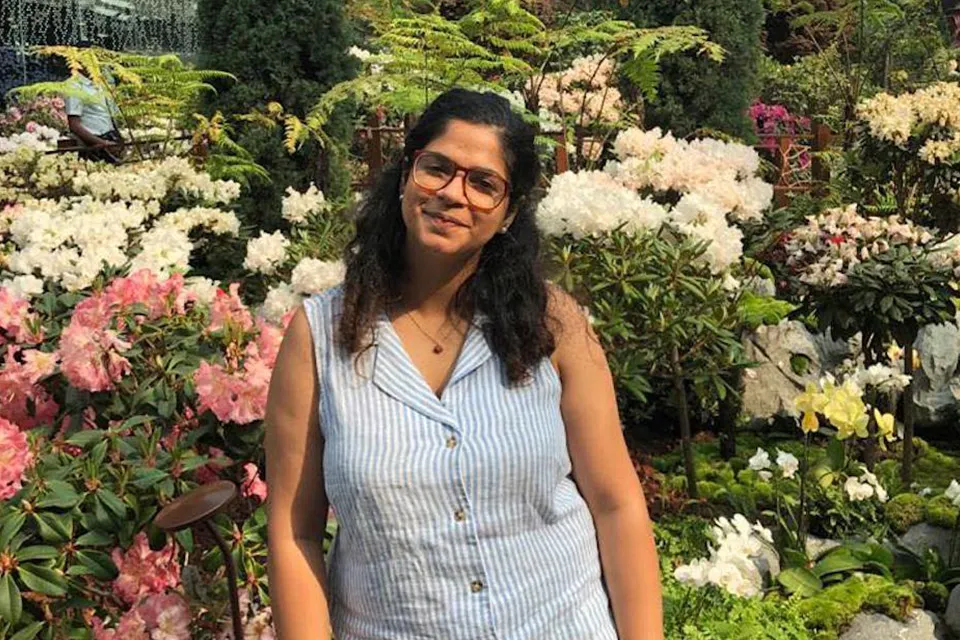
Growing up in Karachi, Pakistan, Zahra Hirji experienced gender disparity first-hand. Like many girls in the city, she was not allowed to walk to and from school unescorted for fear of harassment and violence.
As a Master of Landscape Architecture (MLA) student at UBC’s School of Architecture and Landscape Architecture, Hirji returned to her old neighbourhood in Karachi for her graduate project, with the aim of revitalizing underutilized parks and to give women agency in their landscape.
Hirji isn’t stopping there. She intends to present her project to NGOs in Pakistan to see if it can be implemented in urban parks in Karachi, and to advocate for minorities and diverse ideologies in her future designs. She encourages future students to celebrate their individuality, cultural background and identity:
"Women are resilient, strong and, if given the opportunity, only help the city grow to be more inclusive and safe."
Coralie Tcheune, Bachelor of Applied Science, School of Biomedical Engineering
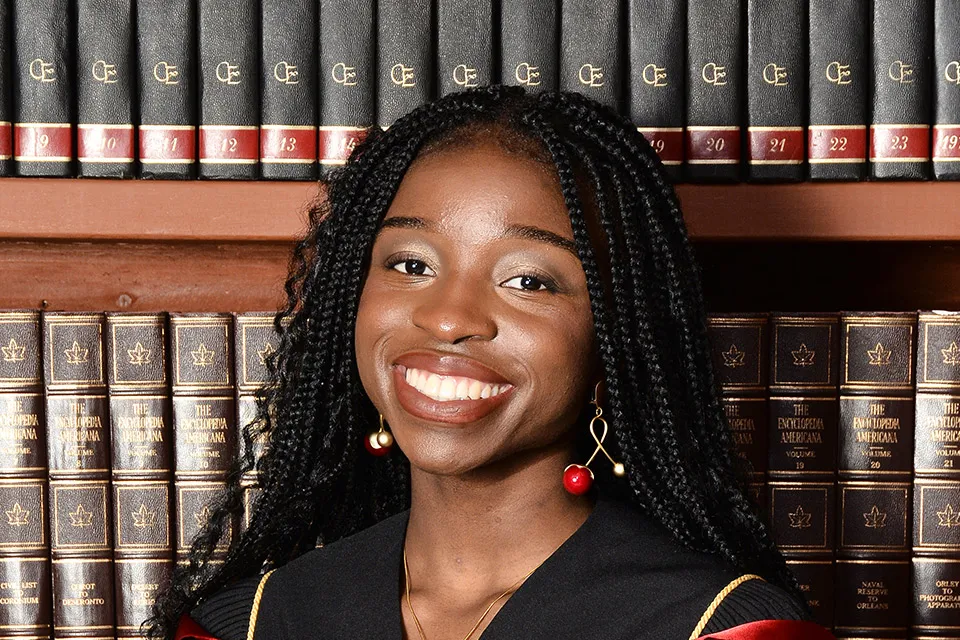
Coralie Tcheune’s interest in engineering began at a young age, spurred by natural childhood curiosity. She said, "I was a tiny menace who would rip apart anything I could get my hands on to figure out how it worked."
Her next building block of support came from her parents, both of whom hold degrees in STEM. Her mother earned a degree in Computer Science, which was virtually unheard of for women in Cameroon. Tcheune always has her mother’s experience to lean on when she encounters the challenges of being a Black woman in engineering.
In addition to excellent academic performance, Tcheune’s involvement at UBC has been widespread. She has been a member of UBC’s Black Student Union, a co-chair for the Engineering Undergraduate Society’s Equity, Diversity, Inclusivity and Indigeneity (EDI.I) Committee, and a Women in Engineering mentor, highlighting her dedication to supporting equity and diversity at UBC as an undergrad.
For her dedication and commitment to EDI.I, Tcheune is receiving this year’s Lieutenant Governor’s Medal for Inclusion, Democracy and Reconciliation. The medal recognizes students who excel in their studies and contribute to the life of their institution or community. She was presented the award during her Spring 2024 Graduation ceremony today.
Ellison Chung, Master of Health Leadership and Policy, School of Nursing
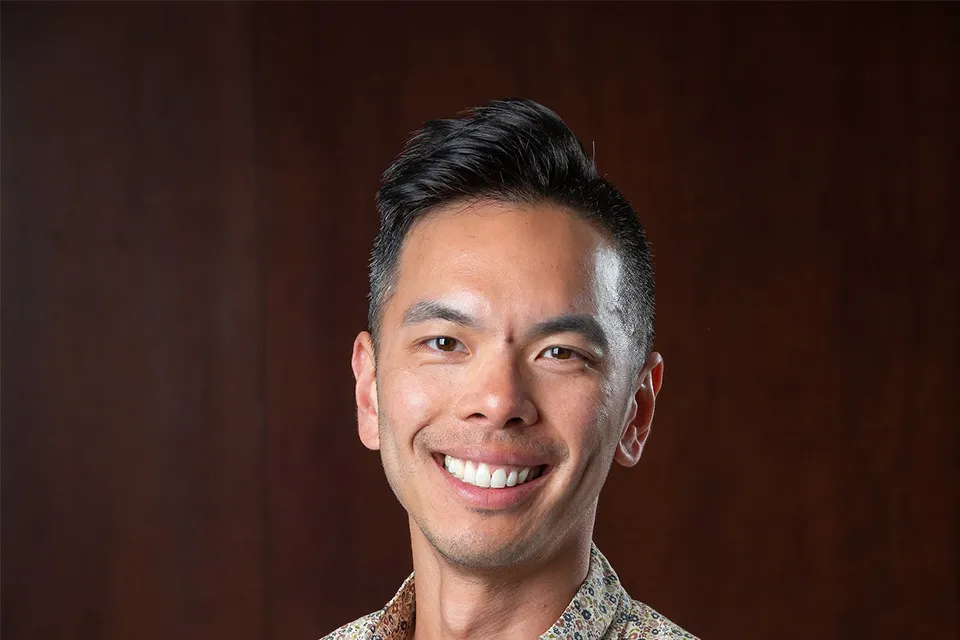
Ellison Chung is already proving his expertise in health-care education with his recent promotion to the position of Clinical Education Consultant at the Provincial Health Services Authority (PHSA). Beyond educational excellence, he is committed to enhancing healthcare equity through research and application, which factored into his decision to undertake a Master of Health Leadership and Policy (MHLP).
"I knew my interest in equity, diversity and inclusion was a main driver for my work within the healthcare system, so I wanted to have a program that leaned into those approaches and would help give me tools to create system changes."
His practicum focused on improving Indigenous experiences and safety with PHSA, where he played a pivotal role in drafting a new policy for Indigenous self-identification in healthcare practice. Chung also co-led a project to develop a simulation-based learning tool to reduce biases within healthcare settings, which was presented at the 2023 WNRCASN Symposium and the 2023 CASN Biennial Nursing Education Conference, two prestigious nursing forums across Canada.
To Chung, equity, diversity and inclusion is personal. He identifies as a cis-gender gay man of Asian descent to immigrant parents, and was brought up in a professional landscape where being a male nurse is not common. Chung is a shining example of diversity within his field, and of someone working to enable greater equity and inclusion for many more people.
Caitlin Botkin, Master of Science in Nursing, School of Nursing
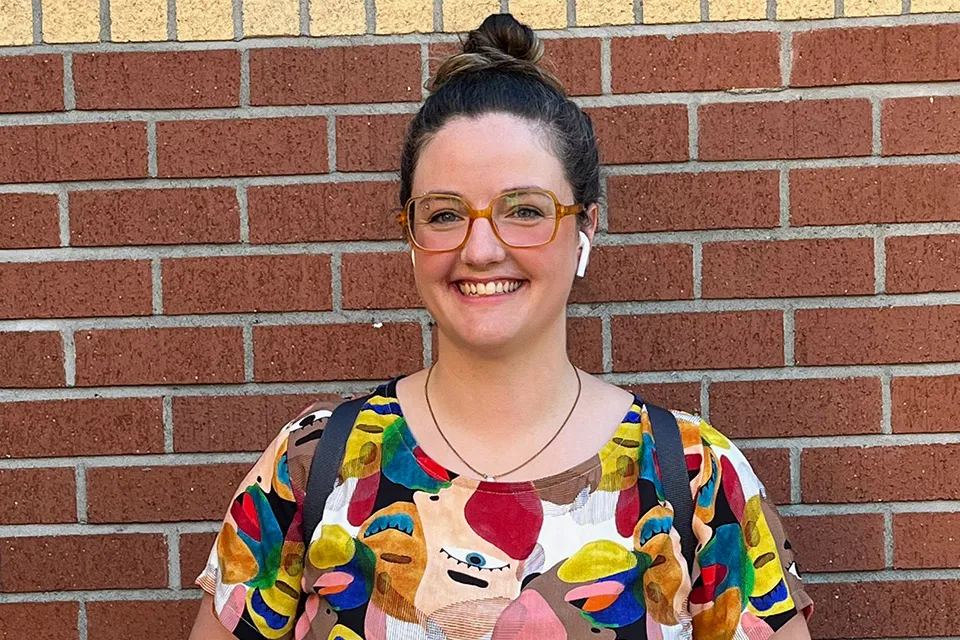
Caitlin Botkin spent a decade as a practicing nurse before returning to study for her Bachelor of Midwifery degree at UBC. She said that during her degree she witnessed a side of healthcare that was grounded in informed choice and individual values.
“My time at UBC has changed how I relate to the world,” said Botkin. “I began to question previously held assumptions. I embraced a relational and individualized approach to care, grounded in principles of decolonization and intersectionality.”
She then decided to pursue her Master of Science in Nursing at UBC, where she valued the university’s emphasis on research. Her exceptional research, analytic and writing skills were on full display in her thesis, "Support of Lactation Induction in Transgender, Two-Spirit, and Non-Binary (TTNB) People.” Her work was guided by community dialogue and grounded in her expertise as a nurse and midwife.
Of note in this research is her non-stigmatizing approach to data analysis and reporting, which promote equity and inclusion for TTNB people. Her research is an important step towards improving healthcare access for groups that currently experience significant disparities.






